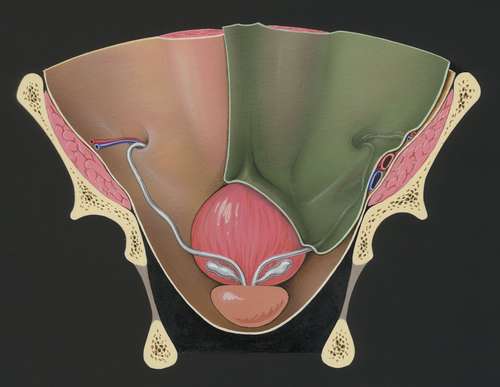The conversation surrounding GLP-1 drugs has entered a whole new phase with the discussion of something termed as ‘Ozempic Vulva’. Many women have come forward with reports of vulvar changes, including sagging skin, vaginal dryness, and weakened pelvic muscles after using GLP-1 receptor agonists such as Ozempic. Could these symptoms be a direct side effect of the drug, or are other factors at play? This article digs into the details and discusses various perspectives so you can better understand what might be happening.
If you’ve been following the news about GLP-1 drugs and diabetes treatment, you might have heard of the buzz around Ozempic usage and the emerging reports of unusual side effects. It makes you wonder – how did a medication well-known for aiding weight loss and managing diabetes become linked with something like vulvar health complications?
Understanding Ozempic and GLP-1 Drugs
Before we dive deep into the Ozempic Vulva discussion, let’s take a moment to understand what GLP-1 drugs are and how they work. GLP-1 receptor agonists, including Ozempic, are primarily developed as treatments for type 2 diabetes and are known for their ability to assist with weight management. The drugs mimic an intestinal hormone that stimulates insulin secretion, effectively helping to control blood sugar levels while reducing appetite.
It’s important to note that while these medications offer benefits for diabetes treatment, many users have reported a range of side effects, collectively known as diabetes medication side effects. From nausea to injection site reactions, every medication carries some risk. This risk extends to other areas of the body, and as more users share their experiences, discussions on Ozempic side effects and even the controversial term, Ozempic Vulva, have gained traction online.
The idea that a diabetes drug might lead to vulva inflammation or other changes in vulvar health brings a mix of confusion and concern among many women. While not everyone experiences these issues, the growing number of discussions indicates that it’s worth a closer look.
Ozempic Vulva: The Reported Side Effects
This section explores the phenomenon referred to as “Ozempic Vulva”. Reports suggest that some women using GLP-1 drugs are noticing a change in their genital area, including symptoms such as skin sagging, dryness in the vaginal area, and even a feeling of reduced pelvic strength. How can a drug meant for diabetes treatment lead to these unexpected changes?
The answer might lie in the interconnected nature of our body’s hormonal balance, weight loss, and overall tissue health. In some cases, rapid weight loss—a known effect of GLP-1 agonists—can reduce the cushioning and support provided by fat tissue in the body. This loss might contribute to a weakening of the muscles around the pelvic region, leading to a condition described by some as Ozempic Vulva. The emphasis here is on understanding that just as rapid weight loss can affect the skin on your face or arms, it can also impact more sensitive regions.
Another aspect that has been discussed is vulvar inflammation. While not every woman taking Ozempic experiences this, a few have noted increased dryness or discomfort. These observations have sparked debates among women’s health advocates and experts alike, with many questioning whether these are direct medication risks or consequences of the profound metabolic shifts caused by the drug.
Possible Causes: Weight Loss and Hormonal Changes
Here, we take a closer look at the potential underlying factors. It’s no secret that significant weight loss can bring about unexpected changes in the body, but is that really the only explanation for the reported Ozempic Vulva cases?
First off, rapid weight loss can reduce the fat padding around the pelvic muscles, naturally leading to a sensation of sagging or less support in the vulvar area. Think of it like a big cushion losing its stuffing; over time, it just doesn’t hold the same form. When you lose that extra storage of fat, the tissues might not be as robust, making them more susceptible to changes.
Additionally, hormonal shifts play a crucial role in maintaining vaginal and vulvar health. As estrogen levels drop or fluctuate, issues such as vaginal dryness and inflammation can emerge. For those on GLP-1 drugs, the interplay between weight loss and hormonal rebalancing might simply expose pre-existing vulnerabilities in the body.
This isn’t to say that every woman using GLP-1 drugs will experience these side effects. In fact, most women tolerate the medication very well, and instances of Ozempic Vulva remain a debated topic rather than a widely confirmed side effect. Researchers and healthcare professionals continue to investigate these claims to better understand if the observed changes are an intrinsic part of the drug’s profile or simply a byproduct of extensive weight loss.
Managing and Mitigating the Effects
In this section, we discuss practical strategies and management techniques for those who may be experiencing these side effects. If you or someone you know is grappling with changes linked to GLP-1 drug effects, it’s important to know that options exist to address these challenges. Medical intervention and lifestyle adjustments can often help restore balance.
For example, a few individuals have reported improvement through pelvic floor exercises aimed at strengthening weak muscles. Simple routines like Kegel exercises can make a noticeable difference in the long run, much like regular exercise helps maintain overall physical strength. Many healthcare professionals recommend this as part of a comprehensive approach to women’s health when dealing with medication risks.
Vaginal moisturizers and hormonal therapies are also potential aids in reducing vaginal dryness and discomfort. By leveraging treatments that directly target vulvar health, you can maintain overall comfort while you continue your diabetes treatment regime. It’s encouraging to see that healthcare providers are beginning to consider these extra dimensions of care when addressing diabetes medication side effects.
This entire conversation underscores a broader point – staying in touch with your healthcare provider is crucial. If you notice any unexpected changes while on GLP-1 drugs, let your doctor know immediately. Discussing your symptoms openly can help ensure that you receive the best possible guidance and care. In this evolving landscape of diabetes drug safety and Ozempic controversy, your experience matters and it’s important to seek professional advice tailored to your individual needs.
Even though there are still many questions surrounding the phenomenon of Ozempic Vulva, taking proactive steps can make all the difference. Consider scheduling a consultation with a pelvic health specialist or endocrinologist who can offer insights into both the benefits and potential risks of GLP-1 agonists.
The Ongoing Debate and Looking Ahead
This section provides a snapshot of where the debate currently stands. In the world of medication risks and diabetes treatment innovations, the discourse around Ozempic Vulva continues to evolve. Researchers are examining more detailed profiles of how GLP-1 drugs affect different tissues in the body, and such studies might eventually offer a clearer connection—if one exists—between these medications and vulvar changes.
There’s no denying that these reports raise concerns, especially in the context of women’s health. Yet, it’s also essential to weigh these potential side effects against the incredible benefits that GLP-1 drugs can offer in terms of blood sugar management and weight reduction. As with any medication, individual responses can vary widely. Just like we scrutinize all diabetes medication side effects, the conversation around Ozempic Vulva serves as a reminder of the complex nature of our bodies.
This debate is far from settled. Healthcare providers continue to advise patients to weigh the pros and cons with their doctors. If you’re curious or concerned, ask questions. Remember, your path to healthy living should always include informed decisions.
In summary, while Ozempic Vulva has emerged as a controversial topic, it represents a broader discussion about the unseen effects that powerful medications can have. With ongoing research and open dialogue, our understanding of GLP-1 drug safety is bound to improve over time.
Ultimately, keeping an open mind and staying informed is key. Whether you choose to continue with your diabetes treatment or explore alternatives, knowing the facts about medication risks and how they might affect vulvar health is crucial for making the best decisions for your overall well-being.
Remember to speak with your healthcare provider if you have any concerns about your treatment plan, and you might just find that the questions you have lead to even better solutions tomorrow!




